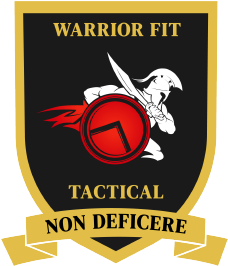
Unlocking Your Potential: The Benefits of Elevated Heart Rate Shooting
Introduction
In the world of shooting sports and self-defense training, there’s a technique that’s gaining recognition for its profound advantages: elevated heart rate shooting. This method involves practicing shooting skills while deliberately increasing your heart rate through physical activity or stress-inducing drills. While it may seem counterintuitive to shoot under such conditions, there are numerous benefits to be gained from this challenging training approach.
1. Realistic Preparedness
One of the primary benefits of elevated heart rate shooting is the ability to train for real-world scenarios. In high-stress situations, your heart rate spikes, and your body’s natural fight-or-flight response kicks in. By practicing shooting in this elevated state, you become better equipped to handle the physical and mental challenges that arise during a crisis. This can be invaluable for law enforcement officers, military personnel, and concealed carry permit holders.
2. Improved Focus and Discipline
Shooting under elevated heart rate conditions demands unwavering focus and discipline. As your heart pounds, you must maintain control over your breath and body movements to hit your target accurately. This level of concentration not only enhances your shooting skills but also transfers to other aspects of life where composure under pressure is essential.
3. Enhanced Physical Conditioning
Elevated heart rate shooting naturally incorporates physical fitness into your training regimen. Engaging in exercises that raise your heart rate before shooting sessions helps improve cardiovascular endurance, strength, and stamina. This dual focus on both shooting skills and physical fitness can lead to a more well-rounded and capable shooter.
4. Stress Inoculation
Stress inoculation is a psychological concept that suggests that exposure to stress in a controlled environment can improve your ability to handle stress in real life. Elevated heart rate shooting provides a controlled setting in which shooters can experience stress and learn to manage it effectively. Over time, this can reduce anxiety and panic in high-pressure situations.
5. Quick Decision-Making
In elevated heart rate shooting, you must make split-second decisions while under physiological stress. This forces you to hone your decision-making skills and practice selecting the appropriate targets and actions rapidly. Such training can be invaluable in situations where making the right choice in an instant can be a matter of life or death.
6. Increased Confidence
Mastering elevated heart rate shooting can significantly boost your confidence in your shooting abilities. Knowing that you can perform well under pressure enhances your self-assurance, making you a more composed and capable shooter overall. This newfound confidence can extend to other areas of your life, too.
Conclusion
Elevated heart rate shooting is a training methodology that challenges both the body and mind, offering a multitude of benefits for shooters of all levels. From improved preparedness for high-stress situations to enhanced physical conditioning and decision-making skills, this approach has the potential to transform you into a more competent and confident shooter.
However, it’s crucial to emphasize that elevated heart rate shooting should be practiced with the utmost safety and under the guidance of experienced instructors. Safety protocols, including proper firearm handling, should always be prioritized to ensure a secure and productive training environment.
So, whether you’re a law enforcement officer, a competitive shooter, or a civilian looking to enhance your self-defense skills, consider incorporating elevated heart rate shooting into your training regimen. It may be the key to unlocking your full potential as a shooter and preparing you for the unexpected challenges life may throw your way.
